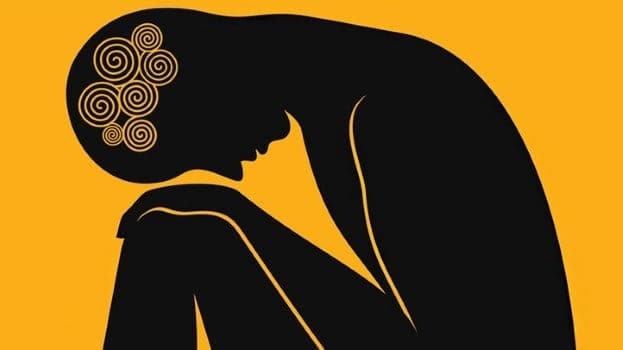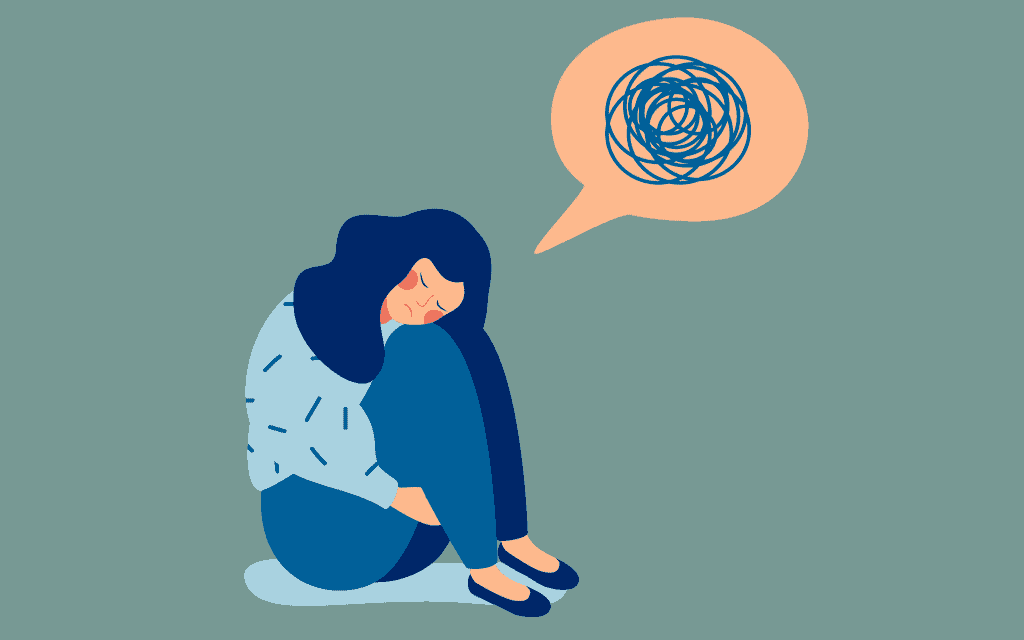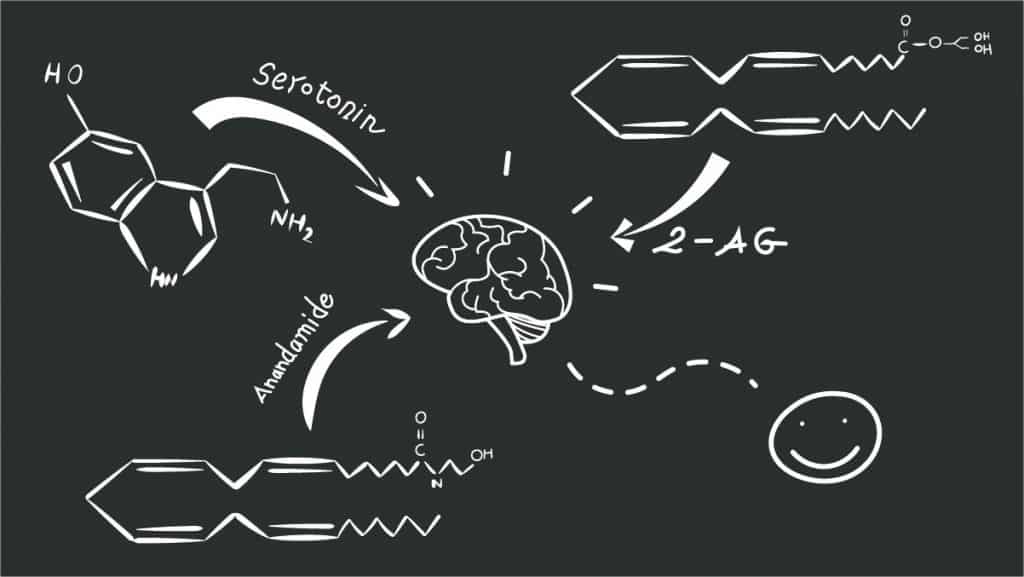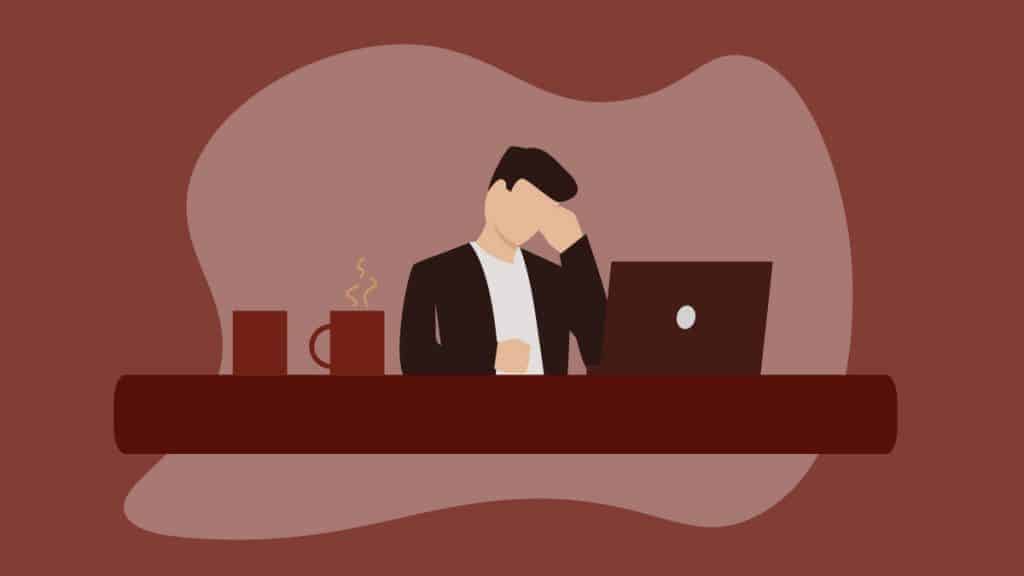ANXIETY

What is Anxiety?
Anxiety is a typical stress response, accompanied by feelings of apprehension, nervousness, or fear about some future event or uncertain outcome.
In its mildest form, anxiety might help motivate and focus on preparation – it is normal to feel anxious before a test, interview, or public speaking event. It can, however, become a debilitating condition and significantly affect a person’s quality of life when it becomes excessive, difficult to control, or does not go away.

Anxiety disorders, such as Generalised Anxiety Disorder (GAD), panic disorder, social anxiety disorder, and specific phobias, are some of the most common mental conditions in the general New Zealand population, with nearly 25% estimated to be affected at some point in their lifetime.
They are characterised by excessive fear or anxiety about situations disproportionate to the threat. They will finally lead to physical symptoms, such as being restless or tired, difficulty concentrating, muscle tension, or sleep problems.
Anxiety disorders are a result of many factors combined, which are not clearly understood. It will always combine genetic, environmental, and psychological situations. Traumatic events, chronic stress, and some personality traits increase vulnerability for anxiety disorders. It can also be a cause of physical health problems, such as heart disease, diabetes, thyroid issues, and respiratory problems.

RESTLESNESS

FATIGUE

POOR CONCENTRATION

IRRITABILITY

MUSCLE TENSION

SLEEP DISTURBANCE
“Anxiety disorders including GAD, along with related conditions of OCD and panic disorder, are the most commonly diagnosed mental health conditions in New Zealand affecting an estimated 25% of the population.”

Comparing CBD with Traditional Anxiety Medications
Understanding Anxiety Treatment Options
Anxiety disorders are among the most common mental health conditions worldwide, affecting millions of individuals (García-Gutiérrez et al., 2020). For many years, the go-to pharmaceutical treatment has been a class of medications called Selective Serotonin Reuptake Inhibitors (SSRI’s) like Fluoxetine, Citalopram, Sertraline, etc. However, as our understanding of mental health evolves, new alternatives like CBD oil are gaining attention.
Anxiety can either be treated using psychological methods or using medications.
The Traditional Approach:
SSRIs work by increasing serotonin levels in the brain, which can help regulate mood and reduce anxiety symptoms. While effective for many, they do have some drawbacks:
- Potential side effects, including sexual dysfunction and weight changes
- Not effective for all individuals
Despite these challenges, SSRIs remain a valuable tool in anxiety treatment, supported by extensive research and clinical experience (Berger et al., 2022). Other treatments that can be used effectively alongside pharmaceutical treatments, such as Cognitive Behavioural Therapy (CBT), which have been shown to lead to lower relapse rates compared to drug therapy.
The CBD Alternative
CBD has recently emerged as a potential anxiety treatment. Unlike its cousin THC, CBD doesn’t cause a “high” and is generally well-tolerated. Its growing popularity stems from:
- Potentially fewer side effects
- A more natural approach to anxiety management
- Reported improvements in mood and anxiety for some users
Recent studies, including a meta-analysis by Han et al. (2024), have shown promising results for CBD in treating anxiety disorders. However, it’s important to note that individual responses can vary



Comparing Effectiveness and Side Effects
While SSRIs have a longer history of use and more extensive clinical evidence, early research suggests CBD may offer a viable alternative or complementary treatment for some individuals (Shannon et al., 2019). CBD generally appears to have a favorable side effect profile, which is driving interest in its use for anxiety (White, 2019). One interesting aspect of CBD is its potential to be used alongside other treatments, such as talk therapy. This combined approach might lead to better outcomes for some people (Sarris et al., 2020).
Important Considerations
While CBD shows promise, more research is needed to fully understand its long-term effects and optimal use for anxiety. The quality of CBD products can vary, so it’s crucial to consult with a medicinal cannabis doctor before making any changes to your treatment plan.
Both SSRIs and CBD offer potential benefits for managing anxiety, but they work differently and have distinct pros and cons. As research continues, CBD may play an increasingly important role in anxiety treatment. However, the most effective approach remains working closely with a healthcare provider to find the best individualised treatment plan.
Generalised Anxiety Disorder and Other Anxiety Conditions: Potential Role of CBD
Understanding Generalised Anxiety Disorder (GAD)
Generalised anxiety disorder (GAD) is characterised by persistent and excessive worry about various aspects of daily life. People with GAD often find themselves preoccupied with concerns about work, health, finances, or relationships, even when there’s no apparent reason for concern.
Key features of GAD include:
- Persistent worry that’s difficult to control
- Restlessness or feeling on edge
- Difficulty concentrating
- Irritability
- Sleep disturbances
- Physical symptoms such as muscle tension or fatigue
GAD can significantly impact one’s quality of life, interfering with work performance, personal relationships, and overall well-being.
Other Forms of Anxiety
While GAD is one of the most common anxiety disorders, there are several other forms of anxiety that individuals may experience:
- Social Anxiety Disorder (SAD) SAD involves intense fear of social situations and being judged by others. People with SAD may avoid social interactions or endure them with significant distress.
- Panic Disorder Characterised by recurrent, unexpected panic attacks, panic disorder can lead to persistent worry about future attacks and avoidance behaviours.
- Specific Phobias These involve intense, irrational fears of specific objects or situations, such as heights, spiders, or flying.
- Post-Traumatic Stress Disorder (PTSD) While often classified separately, PTSD shares features with anxiety disorders and involves persistent anxiety following exposure to a traumatic event.
Emerging Research on CBD for Anxiety Disorders
Recent studies have begun to explore the potential of cannabidiol (CBD) in managing various anxiety disorders. While more research is needed, early findings are promising:
- Generalised Anxiety Disorder (GAD) A systematic review by García-Gutiérrez et al. (2020) found that CBD shows promise in treating anxiety disorders, including GAD. The review noted that CBD’s anxiolytic effects may be related to its interaction with serotonin receptors.
- Social Anxiety Disorder (SAD) Bergamaschi et al. (2011) conducted a study where CBD significantly reduced anxiety in patients with SAD during a simulated public speaking test. This suggests CBD may have potential in managing social anxiety symptoms.
- Post-Traumatic Stress Disorder (PTSD) A review by Bitencourt and Takahashi (2018) indicated that CBD might have a potential therapeutic role in treating PTSD symptoms, particularly in reducing anxiety and improving sleep quality.
- Panic Disorder While specific studies on CBD for panic disorder are limited, research on its general anxiolytic effects suggests it may be beneficial. However, more targeted research is needed in this area.
- Sleep-Related Issues Shannon et al. (2019) reported that CBD might help improve sleep in individuals with anxiety. This is particularly relevant as sleep disturbances are common across various anxiety disorders.
Considerations and Future Research
Emerging research suggests that CBD may have potential in managing symptoms of various anxiety disorders. However, it’s crucial to approach CBD use under medical supervision. If you’re considering CBD for anxiety management, consult with a healthcare professional to discuss whether it might be appropriate for your specific situation.
How Does CBD Help with Anxiety Symptoms?
Cannabidiol (CBD), a natural compound found in the Cannabis sativa plant, has gained attention for its potential to alleviate anxiety symptoms. Unlike its cousin THC, CBD doesn’t produce a ‘high’ but may offer therapeutic benefits for those struggling with anxiety disorders. Research suggests that CBD may help reduce anxiety through several mechanisms in the brain and body:
- Serotonin Regulation – CBD interacts with serotonin receptors, particularly the 5-HT1A receptor (Vitale et al., 2021). Serotonin is a crucial neurotransmitter that helps regulate mood and anxiety. By influencing serotonin signalling, CBD may help stabilise mood and reduce anxious feelings.
- Endocannabinoid System Modulation – Our bodies have a natural endocannabinoid system that plays a role in regulating stress responses. CBD appears to enhance the signalling of endocannabinoids like anandamide, which may help dampen the body’s stress response and promote a sense of calm (Mandolini et al., 2018).
- Brain Activity Regulation – Studies using brain imaging techniques have shown that CBD can affect activity in regions associated with anxiety, such as the amygdala and prefrontal cortex. CBD appears to reduce activation in these areas during anxiety-provoking situations, which may explain its calming effects (Bloomfield et al., 2022).
Clinical Evidence for CBD’s Anxiety-Reducing Properties
Several clinical studies have provided evidence supporting CBD’s potential in managing anxiety:
- In a randomised, placebo-controlled trial, CBD significantly decreased anxiety in patients with generalised social anxiety disorder when they were faced with a simulated public speaking test (Mandolini et al., 2018).
- Research suggests that CBD may be beneficial for various anxiety disorders, including generalised anxiety disorder, panic disorder, and post-traumatic stress disorder (Skelley et al., 2020).
- A review of studies found that CBD showed promise in reducing anxiety symptoms across a range of conditions, with minimal side effects reported (Skelley et al., 2020).
CBD shows potential as a natural option for managing anxiety symptoms. Its ability to interact with multiple systems in the body offers a unique approach to anxiety relief. CBD may interact with certain medications, so it’s crucial to consult with a healthcare professional before starting CBD, especially if you’re taking other medicines.
How To Use CBD Oil for Anxiety
In New Zealand, there are various CBD oils available on prescription. It’s always a good idea to familiarise yourself with the options before deciding on a product, and your doctors can certainly help with this. CBD comes in different forms, such as tinctures, oils, and creams, each with unique absorption methods.
As with any new addition to your health routine, it’s crucial to start slowly. While high-quality CBD products generally have minimal side effects, individual responses can vary. Beginning with small amounts of CBD oil allows your body to adjust, especially if you’re new to CBD products.
It’s important to note that in New Zealand, CBD products are only legally available with a prescription. Your GP or specialist can provide guidance on dosage, as the effects of CBD depend on your individual body composition and specific anxiety needs.
Remember, while CBD shows promise for managing anxiety, it’s part of a broader approach to mental health. Alongside any CBD treatment, consider other strategies like therapy, lifestyle changes, and stress management techniques for a comprehensive approach to your wellbeing.
Does CBD Have Side Effects?
While CBD is generally very well-tolerated, it can cause side effects in some people. It’s important to be aware of these potential effects, especially if you’re considering using CBD for the first time.
Common Side Effects
If experiencing any side effects at all, the most common side effects from CBD are mild and may include:
- Stomach troubles: Some people experience diarrhoea, reduced appetite, or feeling sick to their stomach.
- Feeling tired: CBD might make you feel sleepy or fatigued.
- Dry mouth: You might notice your mouth feels a bit dry after taking CBD.
- Mood changes: Some users report feeling irritable.
These effects often improve as your body gets used to CBD, or if you adjust the amount you’re taking.
More Serious Concerns
While rare, some studies have found more significant side effects, particularly when CBD is used alongside epilepsy medications:
- Liver health: CBD might affect liver enzyme levels, especially when combined with certain epilepsy drugs (e.g. valproate).
- Sleepiness: This is more likely if CBD is taken with some other medications.
CBD and Other Medications
CBD can interact with some medicines by affecting how your body processes them. This could change how well your other medications work or increase their side effects. The quality of CBD products can also vary, so it’s important to be prescribed verified medicines.
Always talk to your doctor before starting CBD, especially if you’re taking other medications or have health conditions. They can help you use CBD safely and keep an eye out for any problems.
Anxiety Test NZ
If you feel that you might be having anxiety, an anxiety test could be just the right way to start discovering your symptoms. In New Zealand, there are some tested online resources where one can get screening tools for anxiety.
An online anxiety self-management assessment can help in identifying symptoms of anxiety disorders, which include general anxiety disorder, social anxiety disorder, and panic disorder.
Anxiety self-test | Depression and Anxiety | Welcome to a Brand New Day
Typically, such tests contain questions about feelings, behaviours, and physical symptoms. These tests are primarily enlightening, but a general check by a health professional to diagnose the case is essential.
If you are considering alternative treatments, you may also want to book a consultation with the Cannabis Clinic to explore how medicinal cannabis might help manage your anxiety symptoms.
Conclusion
Anxiety affects a significant portion of New Zealanders, with about 25% experiencing an anxiety disorder at some point in their lives. As our understanding of mental health evolves, new treatment options are emerging alongside traditional medications. One such alternative gaining attention is CBD oil, derived from the cannabis plant but without the intoxicating effects associated with marijuana.
In New Zealand, CBD products are available only by prescription. CBD oil works differently from conventional anxiety medications like SSRIs, as it interacts with the body’s endocannabinoid system and serotonin receptors, potentially helping to regulate mood and stress responses. Early research shows promise for CBD in managing various forms of anxiety, including generalised anxiety disorder, social anxiety, and even PTSD.
While CBD generally has a favourable side effect profile compared to some traditional medications, it’s not without risks. Some patients may experience mild effects like fatigue or digestive issues. More importantly, CBD can interact with certain medications, hence the need for medical supervision.
As research continues, CBD represents a growing area of interest in anxiety management. However, it’s crucial to view it as part of a comprehensive approach to mental health, potentially complementing other treatments like therapy and lifestyle changes. If you’re considering CBD for anxiety, we recommend consulting with one of our medicinal cannabis doctors or ask about our free nurse eligibility phone call, to determine if it’s an appropriate option for you.
A recent trial showed that an extract of medicinal cannabinoids for anxiety has significantly reduced the social anxiety associated with a simulated public speaking test in healthy people! Really interestingly, the extract was as effective as the drug diazepam. This are promising results that suggest CBD oil may help anxiety.


Another recent study showed CBD improved sleep for both healthy people and those who have insomnia. Small doses of CBD were enough to reduce sleep disruption and increase total sleep time.
While it is still early days for conclusive research, these results are a great starting point.

If you, or someone you know is suffering from anxiety please contact one of our experienced doctors here at the Cannabis Clinic to see if cannabis oil for anxiety might be an appropriate treatment option for you.
Disclaimer: Medicinal cannabis and CBD oil are unapproved medicines in NZ which means that there is no conclusive evidence for their effect, apart from Sativex. Many doctors do not routinely prescribe cannabis medicines. The above article was written for general educational purposes and does not intend to suggest that medicinal cannabis can be used to treat any health condition. Please consult with your healthcare provider.